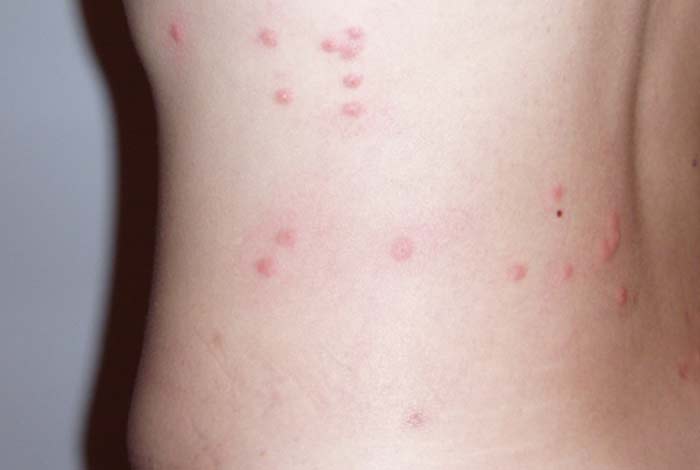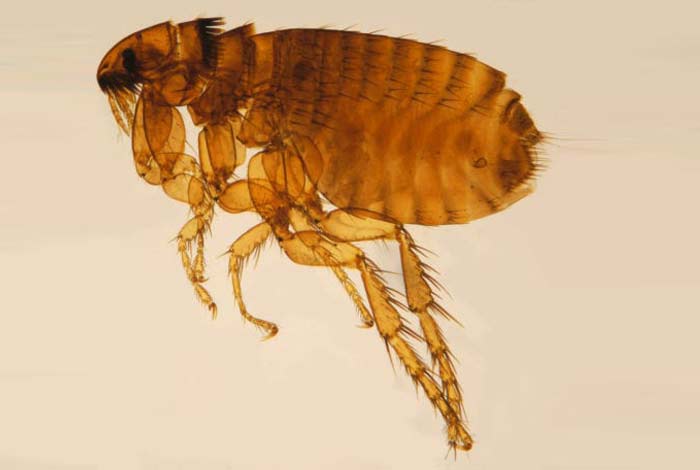If you’ve been bitten by fleas, you’re probably how long the bites and itching effects will last. The duration will vary one person to another. If you’ve bitten by a few fleas, and you are non-allergic, the bites will last for about a day or two. If your body is allergic and the infestation is huge, they may last longer. Following is a further discussion plus how to deal with the bites
Table of Contents
How long Flea bites last
Bites from these tiny insects normally appear as small round lumps that appear in clusters. They are red and have a halo around. The pain they feel can last several months.
The bites last up to two days if you haven’t had an allergic reaction to the bite. If you experience mild reactions, the bites can last for one to two weeks and are usually accompanied by itchy rashes. In some situations, those bitten develop infections that end up lasting longer.

Flea bites pose little health threat to humans but the bites can be irritating. The flea saliva causes increased sensitivity and itching. The symptoms accompanied by the infections include intense pain, swollen glands, and swellings around the bitten area.

How to get rid of the bites
There are numerous remedies, both over the counter and homemade, that you can apply to minimize the itching effect caused by flea bites. However, for severe cases, it is advisable to seek immediate medical attention. Avoid scrubbing the infected spot as it may worsen the condition.
Following are some remedies that can help get rid of the bite and its effects
- Apply an ice pack over the bitten area. The first reaction would be to reduce itching. Ice will reduce itching and reduce the swelling effect from the bite.
- Aloe Vera gel is also a natural home remedy for flea bites. The gel is obtained directly from the plant and once applied on the bitten spot, it moisturizes and soothes the itching effects felt on the skin.
- Using antihistamines such as chlorphenamine, Loratadine, Piriton or Cetirizine are effective means to reduce itching. Take the drugs as prescribed by a physician to soothe the skin and prevent unnecessary complications.
- The application of steroid creams such as hydrocortisone serves to minimize the itching effect. The creams are applied to the affected regions. You, however, need to consult a doctor or a pharmacist to prescribe suitable creams for you.
- You can also apply frozen peas or cold compresses to the bitten region. This causes blood vessels to constrict thus numbing the region and relieves the itching effect. The histamine released by fleas dilates veins and fills the bitten region with blood, therefore, ice reduces swelling.
- There are various over the counter remedies that you can employ to soothe the itching effect. Calamine lotion, creams that contain numbing agents and anti-itch creams are soothing products that you can purchase and apply on the bitten spots.
- You can also apply some remedies such as tea tree oil and vinegar at the spots. They are effective in relieving itching instantly.
- To prevent secondary infections, it is advisable to reduce scratching flea bites. Treating flea bites only reduces the itching, the bites often heal themselves without treatment in most cases.
Prevention measures
The most effective way to prevent flea bites is by completely getting rid of the fleas. These are measures you can employ in eradicating fleas from your house, thus preventing their bites.
- Home pets are the greatest flea carriers and the most probable means through which fleas can infest your home. If you are a pet owner, consult a veterinary doctor to determine whether the pet has fleas or health problems resulting from flea bites. The vet can offer effective flea treatment procedures that you can implement. After treating the pet, you should focus on treating the house. You can achieve this by hiring a professional exterminator.
- You can apply regular flea spray in your home regularly to provide an uncomfortable environment for their development.
- In case you spot fleas on beddings, clothes, and rugs, it can be effective if you machine wash the items using prescribed detergents that are effective in killing fleas.
- You can also vacuum clean the entire house using the preferable nozzle attachments. This will provide an extensive and effective sweep, later, throw away the bag used to store rubbish.
- For heavily infested households, you should contact a professional pest control agency. They have their means to get rid of these pests.
Frequently Asked Questions
How do the flea bites appear?
Once fleas bite, bumps appear on the bitten spot that is round and red. The spots are usually engulfed in a halo shape. For people who are allergic, they develop rashes on the spots. A bitten person experiences severe itching and has a deep need to scratch the spot.
Why is it that the bites are extremely itchy?
Upon biting a person’s skin, fleas secrete saliva that has anticoagulant. The saliva is released into your bloodstream and increases blood flow, thus making it easier to suck blood. The leftover saliva is treated as a foreign substance by the immune system. The body reacts by releasing histamine that causes the swelling on the skin.
How do people get infected by fleas?
Fleas are natural jumping creatures. They can easily jump from pets to pet owners’ skin. Outdoor animals also bear fleas, they can easily jump from outside and infest your household items.
Why do some people develop allergic reactions after a flea bite?
The allergic reactions are a result of the body response to the flea saliva. The residual saliva left by the flea is treated as poison by the body, and the immune system releases histamine. Excessive histamine is a recipe for allergic reactions in some people. Allergic reactions, however, affect only a few people. The reactions last up to 24 hours.
References
- https://www.netdoctor.co.uk/conditions/skin-and-hair/a23889457/flea-bites-treatment/
- https://pets.webmd.com/features/flea-allergies
- https://www.betterhealth.vic.gov.au/health/ConditionsAndTreatments/
Further Reading